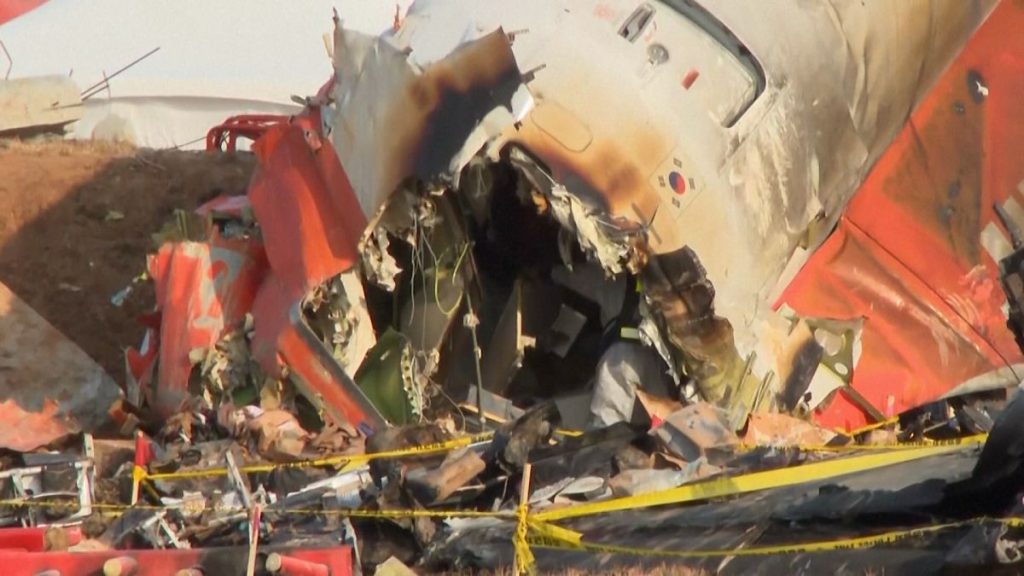The tragic crash of Jeju Air Flight 702 at Muan International Airport on Sunday, February 1, 2025, has plunged South Korea into a period of profound grief and national mourning. The Boeing 737-800, carrying 181 passengers and crew, crashed upon landing, claiming the lives of all but two individuals on board. This devastating event marks the deadliest aviation disaster in the country’s recent history, prompting a seven-day period of national mourning and a thorough investigation to uncover the factors that contributed to this horrific loss. The initial reports suggest a potential bird strike as a contributing factor, with air traffic controllers issuing a warning to the pilot prior to the crash. The aircraft also issued a distress signal before impact, indicating the crew was aware of a critical situation unfolding.
The sheer scale of the tragedy has left the nation reeling, with families and communities grappling with the immense loss. On Wednesday, bereaved families visited the crash site for the first time, participating in a deeply emotional memorial service. The scene was undoubtedly heart-wrenching, filled with tears, prayers, and the palpable weight of collective grief. The sight of the wreckage served as a stark reminder of the sudden and devastating loss of life, leaving an enduring scar on the hearts of those left behind. The families’ presence at the crash site provided a space for shared mourning and a tangible connection to their loved ones lost in the tragedy.
The investigation into the crash is underway, with authorities meticulously examining all available evidence, including flight data recorders, air traffic control communications, and wreckage analysis. The potential bird strike, indicated by the air traffic controller’s warning, will be a key focus of the investigation. Experts will analyze the extent of the damage caused by any bird strikes and assess whether it played a significant role in the crash. The distress signal issued by the aircraft will also be scrutinized to understand the crew’s actions in the moments leading up to the impact. Determining the exact sequence of events will be crucial in preventing similar tragedies in the future.
The investigation will also encompass a thorough examination of the aircraft’s maintenance records, the pilot’s experience and training, and the prevailing weather conditions at the time of the crash. Any mechanical malfunctions or human errors will be carefully scrutinized. The investigation will likely involve international collaboration, with experts from Boeing and the relevant aviation authorities contributing their expertise. The goal is to provide a comprehensive and transparent account of the factors that led to the crash, ensuring accountability and informing future safety measures.
The impact of this tragedy extends beyond the immediate families of the victims, affecting the entire nation. The seven days of national mourning declared by the government reflect the profound sense of loss felt throughout South Korea. Flags are flying at half-mast, and public events have been canceled or postponed as a mark of respect. The nation is united in grief, offering condolences and support to those affected by this devastating event. The outpouring of sympathy and solidarity underscores the collective sense of responsibility and the shared desire to learn from this tragedy.
The Jeju Air crash serves as a somber reminder of the inherent risks associated with air travel and the importance of continuous improvements in aviation safety. The investigation’s findings will be crucial in informing future safety protocols and preventing similar incidents. The aviation industry, regulatory bodies, and airlines worldwide will carefully analyze the results of the investigation to identify any systemic issues or areas for improvement. This tragedy underscores the ongoing need for vigilance and a commitment to ensuring the highest standards of safety in air travel to protect lives and prevent future heartbreak.














